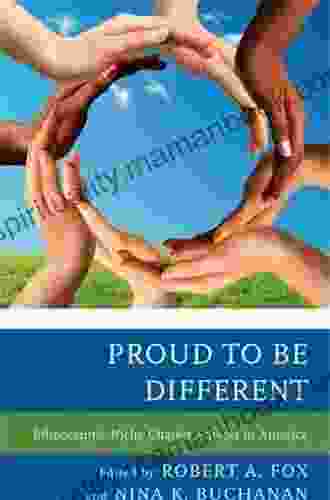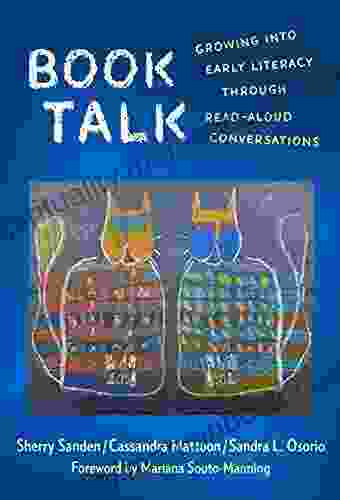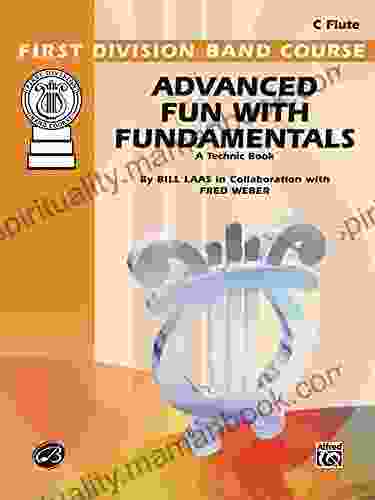Ethnocentric Niche Charter Schools: A Critical Examination of Their Impact on American Education

Charter schools have emerged as a contentious topic in American education. These publicly funded but privately managed schools often cater to specific populations, including ethnocentric communities. While some proponents argue that ethnocentric niche charter schools provide culturally relevant education and empower marginalized students, critics raise concerns about their potential to perpetuate segregation and undermine educational equity.
4.4 out of 5
| Language | : | English |
| File size | : | 1027 KB |
| Text-to-Speech | : | Enabled |
| Screen Reader | : | Supported |
| Enhanced typesetting | : | Enabled |
| Word Wise | : | Enabled |
| Print length | : | 192 pages |
This article will provide an overview of ethnocentric niche charter schools in America, examining their history, motivations, and impact on students and society. We will also explore the ethical and legal considerations surrounding these schools and offer recommendations for ensuring that all students have access to high-quality and equitable education.
History and Motivations
The concept of ethnocentric niche charter schools emerged in the 1990s, largely in response to concerns about the educational disparities faced by minority students in traditional public schools. Supporters of these schools argued that students would benefit from learning in an environment that reflected their culture and values.
One of the earliest and most prominent examples of an ethnocentric niche charter school is the KIPP (Knowledge Is Power Program) network. Founded in 1994, KIPP schools target underserved populations, predominantly African American and Hispanic students. Other well-known ethnocentric niche charter schools include the Harlem Children's Zone, Democracy Prep, and Uncommon Schools.
Impact on Students
Research findings on the impact of ethnocentric niche charter schools on students are mixed. Some studies have shown positive results, such as improved academic outcomes, increased student engagement, and higher college acceptance rates. These schools often emphasize cultural identity, community involvement, and rigorous academics, which can foster a supportive and motivating learning environment for students.
However, other studies have raised concerns about the potential for ethnocentric niche charter schools to perpetuate segregation and limit students' exposure to diverse perspectives. Critics argue that these schools may create a sense of separation and isolation from the broader society, hindering students' ability to navigate a multicultural world.
Ethical and Legal Considerations
Ethnocentric niche charter schools raise a number of ethical and legal considerations. One concern is whether these schools violate students' constitutional right to equal protection under the law. By targeting specific ethnic or racial groups, these schools may create a system of unequal access to educational opportunities.
Another ethical consideration is the potential for ethnocentric niche charter schools to reinforce stereotypes and perpetuate racial divisions. By focusing on a single culture or identity, these schools may inadvertently send the message that other cultures are inferior or less valuable.
Legally, ethnocentric niche charter schools must comply with federal and state laws prohibiting discrimination based on race or national origin. However, some critics argue that these schools may use subtle forms of discrimination to maintain their ethnocentric focus.
Recommendations
In light of the complexities surrounding ethnocentric niche charter schools, it is essential to approach this issue with thoughtful consideration. The following recommendations aim to ensure that all students have access to high-quality and equitable education:
- Promote diverse and inclusive schools: Encourage the creation of charter schools that reflect the rich diversity of American society, providing all students with opportunities to learn and interact with people from different backgrounds.
- Ensure transparency and accountability: Require ethnocentric niche charter schools to clearly articulate their mission and goals and to be transparent about their admissions and enrollment practices. Regular monitoring and evaluation are crucial to prevent discrimination and ensure that these schools are meeting educational standards.
- Provide resources for all students: Invest in traditional public schools to ensure that they have the resources necessary to meet the needs of all students, regardless of their race, ethnicity, or background. Charter schools should complement public education, not replace it.
- Foster dialogue and collaboration: Encourage dialogue between charter school leaders, educators, policymakers, and community members to find common ground and address concerns about ethnocentric niche charter schools. Collaborative efforts can lead to innovative solutions that benefit all students.
Ethnocentric niche charter schools in America represent a complex and multifaceted issue. While these schools have the potential to empower marginalized students and provide culturally relevant education, they also raise concerns about segregation and educational equity. It is crucial to approach this issue thoughtfully, ensuring that all students have access to high-quality and inclusive educational opportunities that prepare them for success in a diverse society.
By promoting diverse and inclusive schools, ensuring transparency and accountability, providing resources for all students, fostering dialogue, and collaborating to find innovative solutions, we can create an educational system that truly meets the needs of all learners.
4.4 out of 5
| Language | : | English |
| File size | : | 1027 KB |
| Text-to-Speech | : | Enabled |
| Screen Reader | : | Supported |
| Enhanced typesetting | : | Enabled |
| Word Wise | : | Enabled |
| Print length | : | 192 pages |
Do you want to contribute by writing guest posts on this blog?
Please contact us and send us a resume of previous articles that you have written.
 Top Book
Top Book Novel
Novel Fiction
Fiction Nonfiction
Nonfiction Literature
Literature Paperback
Paperback Hardcover
Hardcover E-book
E-book Audiobook
Audiobook Bestseller
Bestseller Classic
Classic Mystery
Mystery Thriller
Thriller Romance
Romance Fantasy
Fantasy Science Fiction
Science Fiction Biography
Biography Memoir
Memoir Autobiography
Autobiography Poetry
Poetry Drama
Drama Historical Fiction
Historical Fiction Self-help
Self-help Young Adult
Young Adult Childrens Books
Childrens Books Graphic Novel
Graphic Novel Anthology
Anthology Series
Series Encyclopedia
Encyclopedia Reference
Reference Guidebook
Guidebook Textbook
Textbook Workbook
Workbook Journal
Journal Diary
Diary Manuscript
Manuscript Folio
Folio Pulp Fiction
Pulp Fiction Short Stories
Short Stories Fairy Tales
Fairy Tales Fables
Fables Mythology
Mythology Philosophy
Philosophy Religion
Religion Spirituality
Spirituality Essays
Essays Critique
Critique Commentary
Commentary Glossary
Glossary Bibliography
Bibliography Index
Index Table of Contents
Table of Contents Preface
Preface Introduction
Introduction Foreword
Foreword Afterword
Afterword Appendices
Appendices Annotations
Annotations Footnotes
Footnotes Epilogue
Epilogue Prologue
Prologue Bookcaps
Bookcaps Christina Nosek
Christina Nosek Ashutosh Jaiswal
Ashutosh Jaiswal Peter Brady
Peter Brady Thomas L Good
Thomas L Good Jami Kellett
Jami Kellett Casey White
Casey White Steven Lines
Steven Lines Category Pirates
Category Pirates Cary David Richards
Cary David Richards Various Poets
Various Poets Randy Shilts
Randy Shilts Angelo Nikolopoulos
Angelo Nikolopoulos Amy Azzarito
Amy Azzarito Joyce Kilmer
Joyce Kilmer Marino Cattelan
Marino Cattelan Robert A Fox
Robert A Fox Adrian Onyando
Adrian Onyando Malcolm Barnard
Malcolm Barnard Roma Gans
Roma Gans
Light bulbAdvertise smarter! Our strategic ad space ensures maximum exposure. Reserve your spot today!

 Ernest HemingwayEternally Bound: The Alliance - A Captivating Epic of Love, Loyalty, and the...
Ernest HemingwayEternally Bound: The Alliance - A Captivating Epic of Love, Loyalty, and the...
 Mario BenedettiThe Jungle Book: Fall of the Wild - An Epic Tale of Nature and Conservation
Mario BenedettiThe Jungle Book: Fall of the Wild - An Epic Tale of Nature and Conservation Jeffrey HayesFollow ·12.6k
Jeffrey HayesFollow ·12.6k Ashton ReedFollow ·10.1k
Ashton ReedFollow ·10.1k William GoldingFollow ·14.7k
William GoldingFollow ·14.7k Philip BellFollow ·6.8k
Philip BellFollow ·6.8k Jace MitchellFollow ·13.7k
Jace MitchellFollow ·13.7k Ruben CoxFollow ·19.2k
Ruben CoxFollow ·19.2k Virginia WoolfFollow ·18.4k
Virginia WoolfFollow ·18.4k Jerome PowellFollow ·9.1k
Jerome PowellFollow ·9.1k
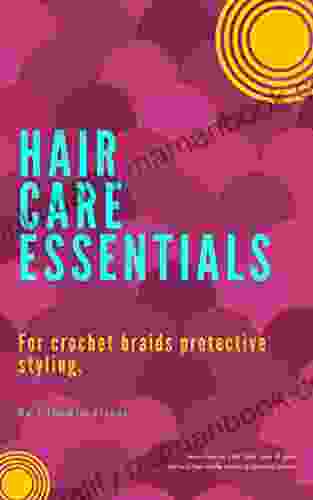
 Thomas Powell
Thomas PowellHair Care Essentials for Crochet Braids: A Protective...
Crochet braids are a versatile and...
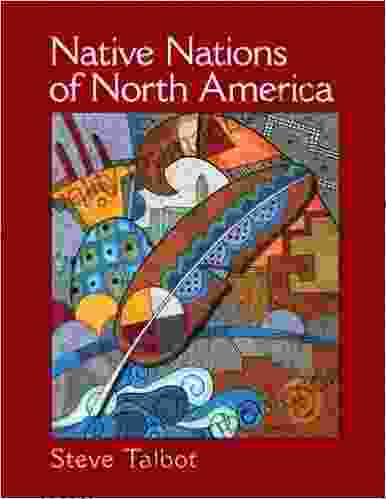
 Philip Bell
Philip BellNative Nations of North America: A Comprehensive Guide
North America is home to a...

 Jackson Hayes
Jackson HayesCall Me Crazy: My Unique Journey with Green
In the kaleidoscopic tapestry of life, where...

 Graham Blair
Graham BlairUnveiling the Literary Treasures of Michigan: A Journey...
The literary landscape of...
4.4 out of 5
| Language | : | English |
| File size | : | 1027 KB |
| Text-to-Speech | : | Enabled |
| Screen Reader | : | Supported |
| Enhanced typesetting | : | Enabled |
| Word Wise | : | Enabled |
| Print length | : | 192 pages |


